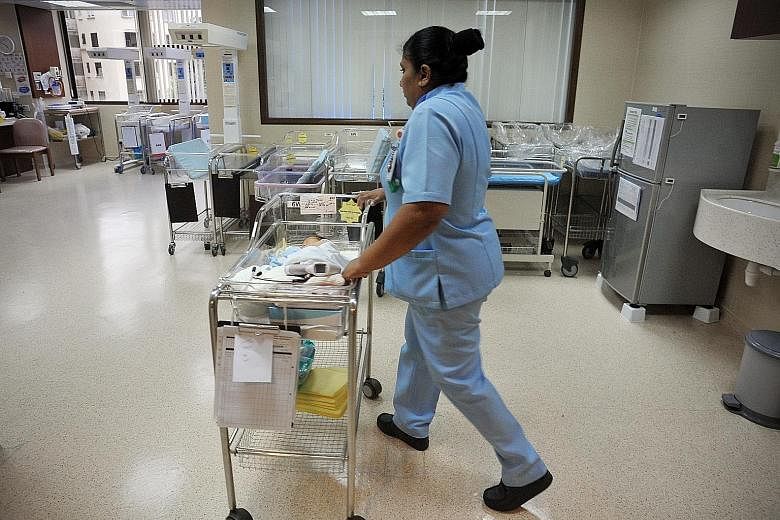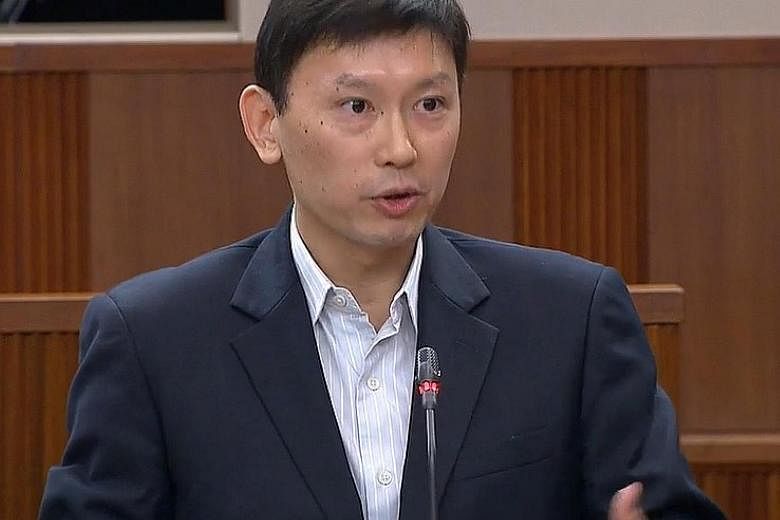The Ministry of Health (MOH) is actively looking at and changing policies, legislation and rules that hinder instead of help in the provision of healthcare.
"At the ministry, we sometimes don't know that some of the rules we have can lead to unintended outcomes," said Senior Minister of State for Health Chee Hong Tat.
Instead of the rules working to make things go smoothly, they sometimes disincentivise more appropriate treatment options.
One example is autologous bone marrow transplant for multiple myeloma cancer patients, which can be done without the patient having to be hospitalised. But with outpatient treatment, MediShield Life does not kick in, nor can Medisave be used. So, patients end up paying more out of pocket. The alternative is to be warded for 18 to 21 days, which increases the total medical cost.
A National University Cancer Institute Singapore (NCIS) study found that home treatment costs $22,175 per patient compared with $32,980 for those hospitalised.
NCIS director Chng Wee Joo said outpatients need to make six to 10 visits to the hospital in that time, adding: "It is better for the patient to be living in the home environment with family support. They are also not exposed to hospital-acquired infections."
Mr Chee told The Straits Times that patients should not need to opt for hospitalisation just to get financial reimbursement. This "kink" was smoothed out in July this year, so outpatient care is also covered by MediShield Life and Medisave.
To promote more of such useful changes, a tripartite committee was set up last year, chaired by Mr Chee, to get ground feedback from public, private and charity sectors.
Dr Chia Shi-Lu, head of the Government Parliamentary Committee for Health, agreed with these changes, adding: "There are other areas that could be tweaked. In some cases, to make a higher claim, the hospital stay has to be longer."
Mr Chee said many sensible changes cannot be made by healthcare workers or institutions as they are "often guided by government policies, funding policies and requirements".
For instance, before licences for medical and dental clinics with ambulatory services were renewed, they had to be checked by an MOH team to ensure requirements were met. This was a manpower-intensive task and disruptive for the clinics. Furthermore, the requirements had become the norm, so the rule was recently changed to allow for clinics to make a self-declaration, with only spot checks done by MOH.
Another change upgraded the work scope of nurses. It involved discussions with the professional bodies and changes to legislation.
So now, advanced practice nurses can prescribe medicine, previously done only by doctors. Similarly, enrolled nurses are now allowed to give patients medicine, previously a job that only the more senior registered nurses could do.
Mr Chee said another change authorised therapists to refer patients for subsidised therapy. Previously, only a doctor could do so. But the doctor would have to check with the therapist if such therapy was needed. The change resulted in removing one unnecessary step.
"When we look at how we deliver care, a lot of it is thinking through the whole process from start to finish," he said, adding that it is an ongoing process and people on the ground are encouraged to voice problems or suggest better ways of doing things.
Not every suggestion might work, he said, but "no change is too small or insignificant for us to take up if it can lead to a better outcome for patients and healthcare workers".



